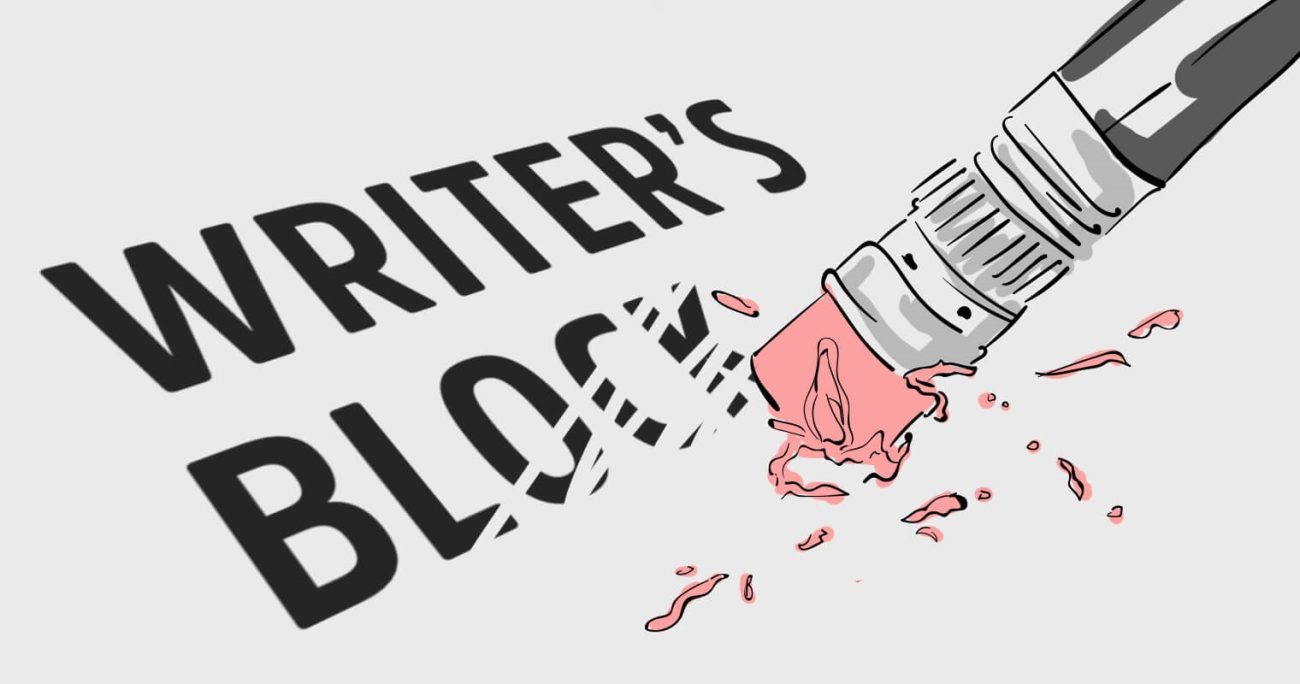Are you also wondering how to stop writer’s block? Writer’s block is one of the most frustrating challenges any writer can face. Whether you’re a novelist, blogger, journalist, or student, the feeling of staring at a blank page without any inspiration can be overwhelming. However, writer’s block is not an insurmountable obstacle. By understanding its causes and implementing effective strategies, you can keep your creativity flowing and maintain a steady writing habit.
This comprehensive guide will explore the root causes of writer’s block, practical ways to prevent it, and actionable strategies to overcome it when it strikes.
Understanding the Causes of Writer’s Block
Before tackling writer’s block, it’s essential to understand its underlying causes. Here are some of the most common reasons why writers struggle to produce content:
Fear of Imperfection
Many writers hesitate to begin because they fear their work will not be good enough. This perfectionist mindset creates unnecessary pressure, making it difficult to get started.
Example: A fiction writer may have a brilliant story idea but worries that their first draft won’t live up to their expectations. As a result, they procrastinate and never put their ideas into words.
Lack of Inspiration
Creativity is not always readily available. Sometimes, writers struggle because they lack fresh ideas or inspiration.
Example: A blogger who writes about personal development may feel stuck after covering the same topics repeatedly, making it challenging to come up with fresh content.
Stress and Anxiety
Personal and professional stress can take a toll on mental clarity and focus, making it difficult to concentrate on writing.
Example: A journalist facing tight deadlines may feel overwhelmed, leading to difficulty organizing their thoughts and producing high-quality work.
Burnout
Writing consistently without adequate breaks can lead to burnout, causing mental exhaustion and a lack of motivation.
Example: A full-time content writer producing multiple articles per day may eventually experience burnout, making it harder to engage with their work creatively.
Poor Writing Environment
A cluttered, noisy, or uncomfortable environment can be distracting and prevent the writer from entering a productive mindset.
Example: A student trying to write an essay in a noisy coffee shop may struggle to focus, leading to slow progress and frustration.
Lack of Structure
Without a clear plan or outline, writing can feel overwhelming. Many writers struggle because they don’t know where to start or how to organize their thoughts.
Example: A business professional writing a report may have all the necessary data but no clear structure, making it difficult to start writing.
Overwhelming Expectations
When writers set unrealistic expectations for themselves, they can become paralyzed by the pressure to perform at a high level consistently.
Example: A novelist aiming to write 5,000 words a day might feel so overwhelmed that they fail to write anything at all.
How to Prevent Writer’s Block

The best way to overcome writer’s block is to prevent it from happening in the first place. Here are some proven techniques to maintain a steady flow of ideas and productivity:
1. Develop a Writing Routine
Establishing a consistent writing schedule helps train your brain to be creative at specific times. Whether it’s early in the morning or late at night, choose a time when you feel most productive and stick to it.
Example: A poet might dedicate 30 minutes every morning to freewriting before beginning their formal projects.
2. Set Realistic Goals
Instead of aiming to write an entire book or article in one sitting, break your work into manageable chunks. Set achievable daily or weekly word count goals to maintain steady progress.
Example: A first-time author might aim to write 500 words per day instead of setting an overwhelming goal of completing an entire chapter at once.
3. Keep an Idea Journal
Inspiration can strike at any time. Keep a notebook or use a digital app to jot down thoughts, phrases, or ideas as they come to you. This habit ensures you always have a pool of topics to draw from.
Example: A travel blogger could use a notes app to quickly record observations during trips, later turning them into full blog posts.
4. Create an Outline
Before diving into writing, sketch an outline of your piece. Having a roadmap helps organize your thoughts and makes the writing process smoother.
Example: A student working on a research paper can break down their sections into introduction, body paragraphs, and conclusion, making the task less daunting.
5. Change Your Environment
If you often struggle to write in one place, try a different setting. Move to a coffee shop, library, or even a park to refresh your mind and gain new perspectives.
Example: A screenwriter might brainstorm ideas in a quiet park before heading to their desk to flesh them out.
6. Read Regularly
Reading a variety of books, articles, and essays can spark new ideas and improve your writing skills. Exposure to different writing styles and topics can help keep your creativity alive.
Example: A fiction writer struggling with dialogue might read plays to learn how to craft more natural conversations between characters.
7. Take Care of Your Mental and Physical Health
A healthy body and mind contribute to a productive writing process. Get enough sleep, exercise regularly, eat nutritious foods, and practice mindfulness to maintain focus and energy.
Example: A busy journalist might integrate short meditation sessions into their day to enhance mental clarity and reduce stress.
8. Set Deadlines and Accountability Measures
Having a deadline can motivate you to keep writing. Partner with a writing buddy, join a writing group, or use productivity apps to stay accountable.
Overcoming Writer’s Block When It Strikes

Despite all preventive measures, writer’s block can still occur. Here are some effective ways to break through the barrier and get back to writing:
1. Freewriting
One of the best techniques to overcome writer’s block is freewriting. Set a timer for 10–15 minutes and write whatever comes to mind without worrying about grammar, coherence, or quality. This exercise helps unlock creativity and eliminate self-judgment.
2. Start in the Middle
If the beginning of your piece feels too daunting, skip it and start writing from the middle or any section you feel comfortable with. You can always go back and add an introduction later.
3. Write Badly on Purpose
Give yourself permission to write poorly. Accept that the first draft does not have to be perfect. Getting words on the page is the first step; you can refine and edit later.
4. Use Writing Prompts
Writing prompts can spark new ideas and help break through mental blocks. Find prompts online, in books, or create your own to kickstart your writing session.
5. Change Your Writing Medium
If you usually type on a computer, try writing by hand. If you normally write in silence, experiment with background music. A simple change in approach can stimulate creativity.
6. Take Breaks and Rest
Sometimes, stepping away from your work can provide a fresh perspective. Take short breaks, go for a walk, meditate, or engage in a different creative activity to reset your mind.
7. Talk It Out
Discuss your ideas with a friend, mentor, or colleague. Talking through your thoughts can clarify them and help you regain focus.
8. Revisit Past Work
Reading your previous work can remind you of your writing capabilities and reignite confidence in your abilities.
9. Engage in Creative Exercises
Try writing poetry, journaling, or creating short stories unrelated to your main project. Engaging in different forms of writing can help unlock new perspectives and ideas.
10. Reward Yourself
Set up a reward system to motivate yourself. After completing a certain amount of writing, treat yourself to something enjoyable, such as a favorite snack, a break, or a fun activity.
In the End
Writer’s block is a temporary challenge that all writers face at some point. The key is not to let it discourage you. By understanding its causes, implementing preventive strategies, and using practical techniques to overcome it, you can keep your creativity flowing and maintain a productive writing habit.
Writing is a journey filled with ups and downs, but with perseverance, discipline, and the right mindset, you can conquer writer’s block and continue to produce meaningful work. Keep writing, stay inspired, and remember: the words will come as long as you keep showing up on the page.
Frequently Asked Questions
1. How can I differentiate between procrastination and actual writer’s block?
Many writers confuse procrastination with writer’s block, but they stem from different issues. Procrastination is often driven by a lack of discipline, distractions, or prioritizing other tasks overwriting. You might find yourself scrolling through social media or cleaning your desk instead of writing. Writer’s block, on the other hand, is the inability to produce words despite the desire to write. If you feel mentally blocked, overwhelmed by self-doubt, or unsure where to start, you’re likely experiencing writer’s block. The best way to tell the difference is to sit down and force yourself to write. If you’re avoiding it out of habit, it’s procrastination; if you genuinely can’t form ideas, it’s writer’s block.
2. Is writer’s block more common among new writers or experienced professionals?
Writer’s block can affect both new and experienced writers, but the reasons differ. New writers often struggle due to self-doubt, lack of confidence, and fear of imperfection, which prevents them from even starting. Experienced writers, however, may encounter writer’s block due to burnout, creative exhaustion, or the pressure to maintain high-quality output. While new writers may hesitate because they are unsure of their abilities, professionals might struggle due to the weight of expectations. Regardless of experience level, every writer can benefit from structured writing habits and strategies to reignite creativity.
3. Can changing my physical environment really help overcome writer’s block?
Yes, changing your environment can have a significant impact on breaking writer’s block. Writing in the same space every day can lead to mental fatigue and make your creative process feel stagnant. A simple change, moving to a café, library, or even a different room, can stimulate fresh thinking and make writing feel less forced. Many famous writers, including J.K. Rowling and Ernest Hemingway, frequently wrote in cafés or outdoor settings to change their surroundings and boost creativity. The key is to find an environment that minimizes distractions while providing enough stimulation to keep your mind engaged.
4. How do I know when I need to take a break versus pushing through the block?
Recognizing when to take a break versus pushing through requires self-awareness. If your block stems from mental fatigue or burnout, pushing through can worsen the situation and lead to frustration. Signs that you need a break include feeling physically drained, rereading the same sentences without progress, or dreading the act of writing. On the other hand, if your block is due to perfectionism or fear of failure, pushing through is often the best approach. A good rule of thumb is to step away for a short, timed break, perhaps a 20-minute walk or a mindfulness session, and then return to writing with renewed focus.
5. Can writing exercises actually help with writer’s block, or are they just a distraction?
Writing exercises are one of the most effective ways to overcome writer’s block because they activate your creative muscles without the pressure of producing a finished product. Freewriting, for example, helps bypass self-criticism by allowing you to write whatever comes to mind without judgment. Prompts and timed exercises can also help shift your brain into a creative mode by giving it a focused but low-pressure challenge. Instead of viewing these exercises as distractions, see them as warm-ups; just like athletes stretch before a workout, writers need mental stretching to get into the flow.



